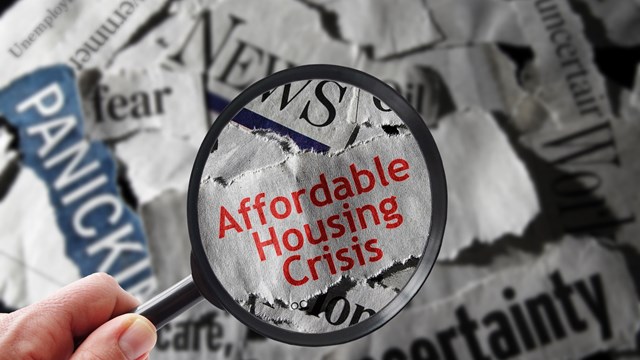Mayor Michael R. Bloomberg has unveiled a $59.4 billion budget plan for Fiscal Year 2010 that reduces the city’s workforce by about 13,000 jobs and counts on givebacks by organized labor to reduce a projected $4.8 billion budget gap.
With New York City caught in the throes of the nationwide recession, the mayor is attempting to balance the FY 2010 budget by measures such as increasing the New York City sales tax by half a percentage point to 8.875 percent, enacting a nickel surcharge on the use of plastic bags, eliminating the sales tax exemption on clothing, reducing spending in nearly every city agency, and relying on concessions from unions. With the economy still foundering from this past summer’s Wall Street collapse, Bloomberg announced that city revenues are down by $5 billion since 2008. Real estate taxes in particular are off by a whopping 47.1 percent and sales and personal income tax revenues are also down by around 14.1 percent.
Bloomberg, who is seeking a third term in office through the removal of term limits, acknowledges that there will be tough times ahead. But he believes the city is well prepared for the challenge.
“Because we were on the alert more than a year ago and because we’ve continued to take prudent steps ever since, we are able to keep our budget in balance while still delivering the services our city needs,” said Mayor Bloomberg. “We’ve launched new initiatives to help New Yorkers stay in their homes, find new jobs and keep their small businesses open. These are the essential first steps on the road to economic recovery. The budget isn’t just about numbers. It’s about making choices that keep our social safety net strong for those in need. It’s about keeping our streets clean and safe for your kids and mine. It’s about continuing to improve our schools. It’s about creating jobs and keeping jobs here. It’s about keeping New York—New York.”
Taking Toll on Taxes
One area in which the recession is taking its toll is on incoming revenues and taxes. “Economically sensitive tax revenue—which includes personal income, sales, business, and real estate transfer taxes—are projected to fall by 30 percent,” said the mayor, “or nearly $7.4 billion, in FY 2010 when compared to FY 2008 levels, before the economic downturn began impacting city revenues.” He adds that total FY 2010 city revenues are forecast to have fallen by nearly $5 billion compared to FY 2008 levels.
One of the small highlights of the budget for homeowners is no longer being offered as well. Due to the city’s budget woes, taxpayers are not receiving the benefit of the $400 property tax rebate as they had in past years.
The co-op/condo abatement as presently constituted is not being rescinded, however. The co-op-condo abatement provides a reduction in property taxes for owners of cooperative and condominium units. Established in 1997, the abatement is intended to reduce some of the disparities in tax burdens between owners of apartments versus single-family houses. It was conceived of as a temporary fix while the finance department resolved technical challenges and considered ways to permanently address the disparities. The abatement was due to expire in 2008, but the state Legislature extended it for another four years. The new extension of the abatement enacted in 2008 pushed back the deadline for the city’s report on disparities between Class 1 and Class 2 owners to February 2011.
Creation of new affordable housing is included as part of the Mayor’s Five Borough Economic Opportunity Plan, a comprehensive strategy to bring New York City through the current economic downturn as fast as possible. It focuses on three major areas: creating jobs for New Yorkers, implementing a long-term vision for growing the city’s economy, and building affordable, attractive neighborhoods in every borough. The plan provides stimulus funding to start Housing Authority projects that will create jobs for 3,255 New Yorkers and fund development projects to strengthen neighborhoods. Other uses of the money will go towards the start of construction of 103 units of affordable housing in Brownsville, among other affordable housing ventures.
City Council Responds
New York City Council Speaker Christine Quinn noted that the city’s economic footing could have been even worse. “The city is facing the worst financial outlook since the 1970s, but thanks to the surpluses we have accumulated over the last several years, the outlook for this year is not as bad as it could have been,” Quinn said in a statement. “However, the projection for FY11 and FY12 continue to raise serious concerns, with projected gaps of $4.6 billion and $5.2 billion respectively.”
She said that service cuts should be avoided at all costs and receipt of the Obama administration’s stimulus funding should help. “Thanks to the federal stimulus funding, we are going to avoid some of the more drastic cuts to our public schools and a number of other important services. However, it is important for everyone to realize that this money is a one-shot deal,” added Quinn. “Stimulus funding for FY11 is less than we hoped, and we must be mindful that while the projection today is better than expected, there are hard challenges we will have to confront in the very near future.”
One bothersome part of the mayoral budget plan is the hike in the sales tax, which Quinn believes will hurt those who are on the lower end of the economic strata. “I continue to believe that increasing sales tax is a regressive way to generate revenue because it places an unfair burden on those who have the least,” she said. “The idea of eliminating the tax exemption on clothing only compounds that burden.”
IBO Analysis
The Independent Budget Office (IBO), a bipartisan agency that analyzes the city’s financial health, reviewed the mayor’s budget plan and can’t help but see the dark clouds on the horizon.
“Over the past six months, New York City’s economic and fiscal outlook has darkened considerably. After seeming to have dodged the worst of the national recession for many months, we are now in the eye of the economic storm as the U.S. housing crisis initially propelling the downturn has become a worldwide financial sector meltdown. Given the city’s role as the international center of finance, IBO now expects the local downturn to be deep and protracted,” according to director Ronnie Lowenstein.
Job losses will be problematic. IBO estimates that the city will lose 270,000 jobs from its employment peak in the first quarter of 2008 through the second quarter of 2010. “As our forecast of job losses has risen, our forecast of tax revenues has declined. Even after accounting for December’s increase of the property and hotel occupancy tax rates, IBO projects tax revenues will fall by $2.6 billion to $34.9 billion this fiscal year. And even if we include the expected revenue from the Mayor’s proposed sales tax increases, we estimate total tax revenues will decline by an additional $1.5 billion in fiscal year 2010.”
According to the IBO report, when the housing market downturn spread to the financial sector and threatened the survival of even the largest and most established financial institutions, it became clear that the damage to New York City’s economy—the national and global center of finance—would be especially great. And while the city entered into recession later than most parts of the country, IBO expects the city’s local economy to decline more sharply and recover more gradually than the nation as a whole. Job losses in the city have accelerated and spread to many industries, and IBO expects employment to decline through the middle of 2010.
Debra A. Estock is managing editor of The Cooperator.







Leave a Comment